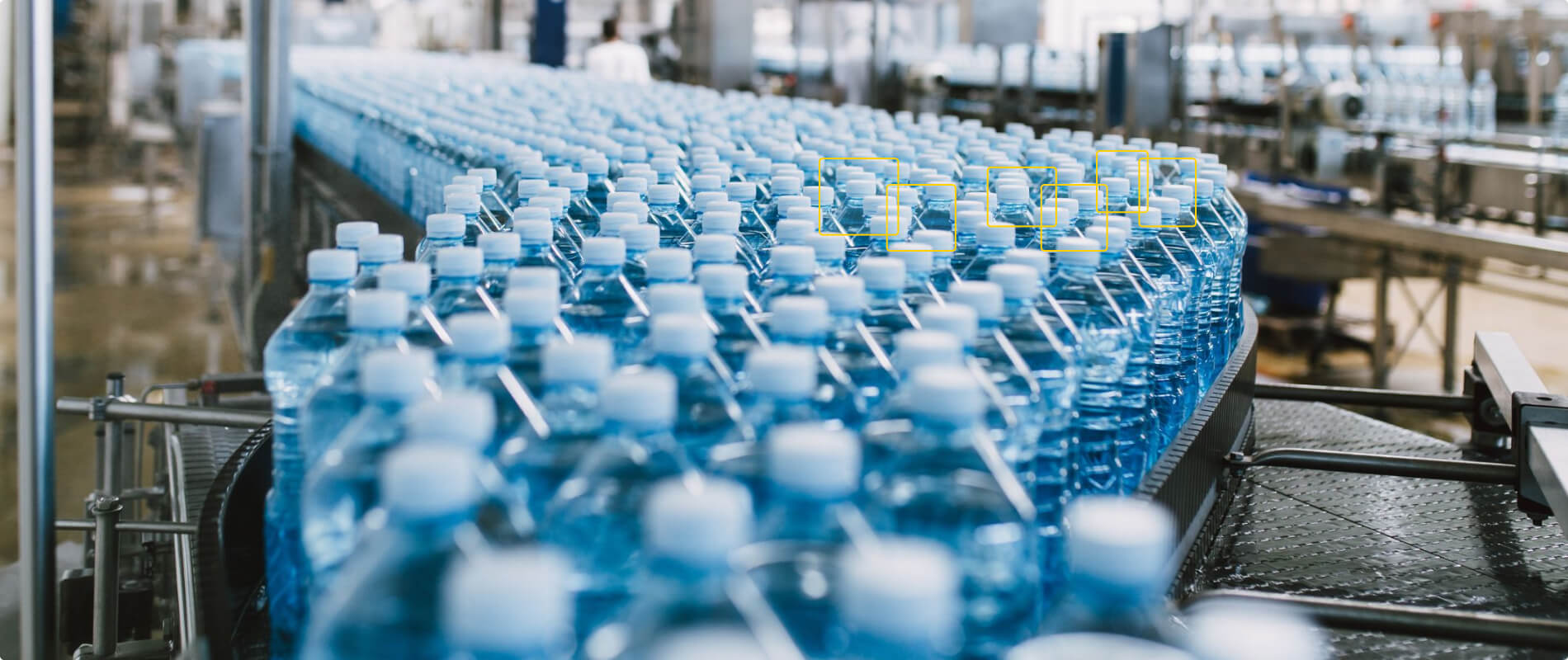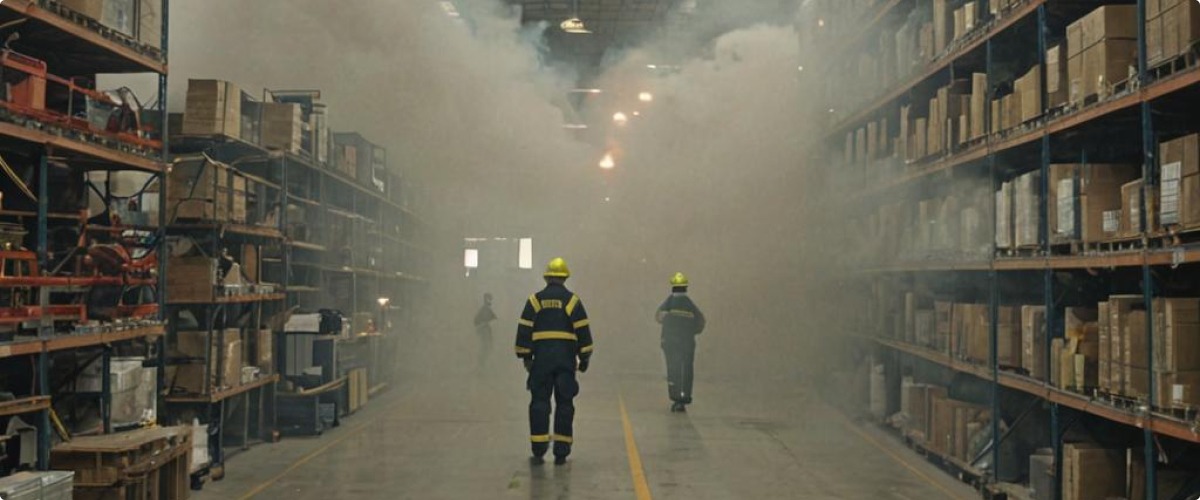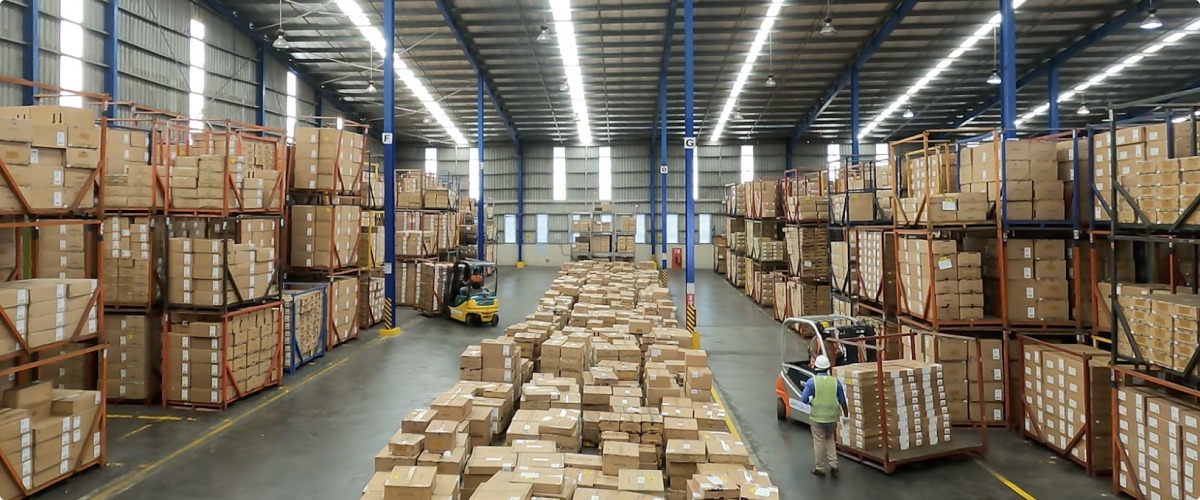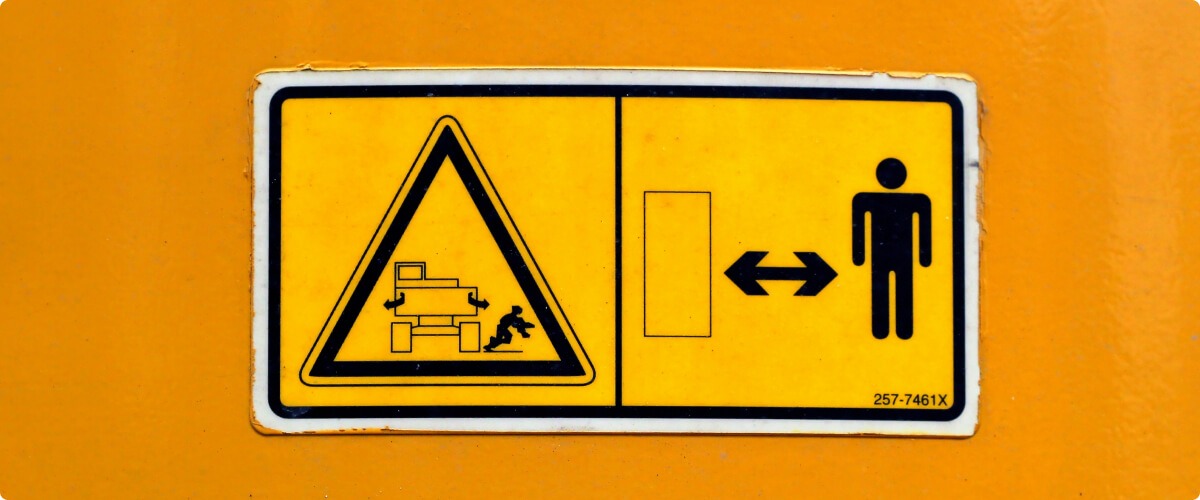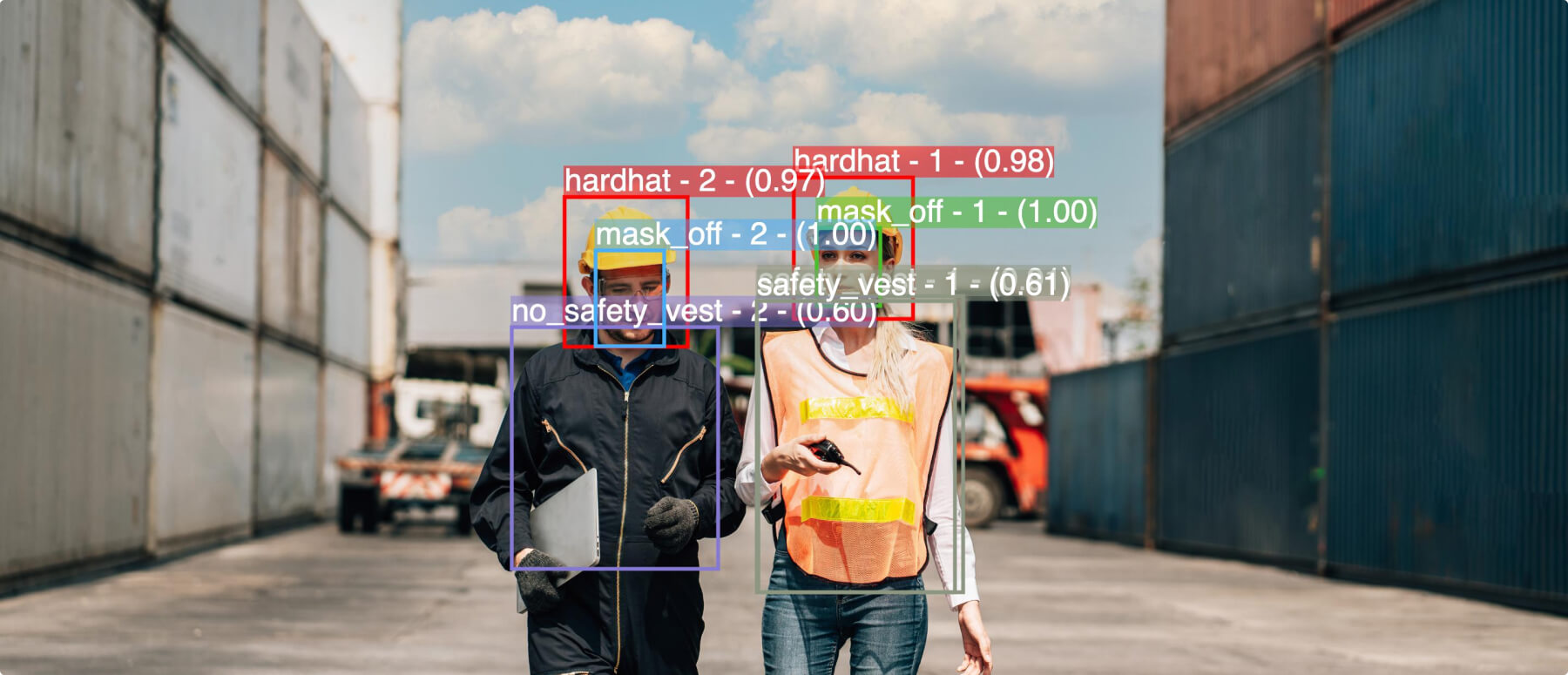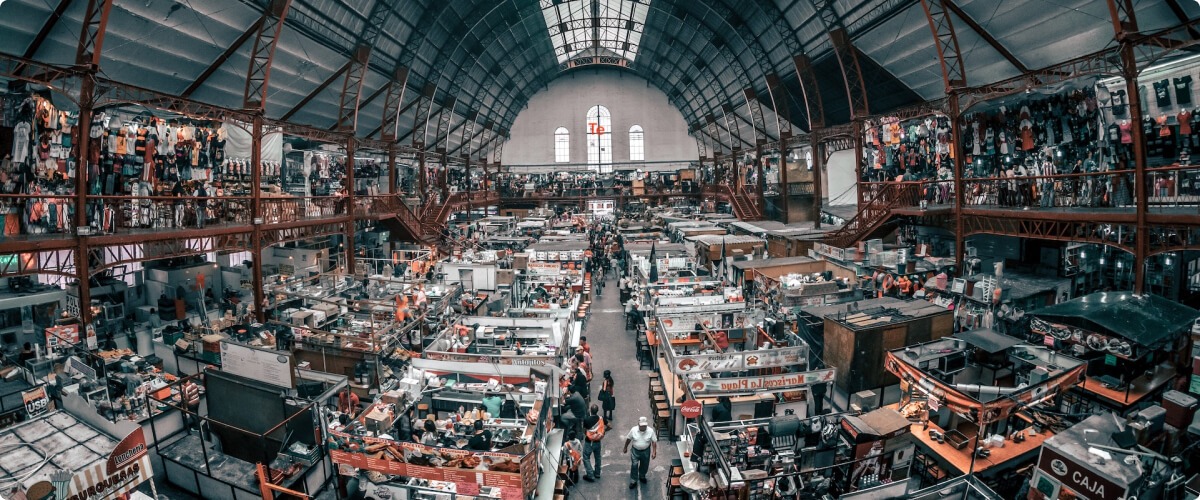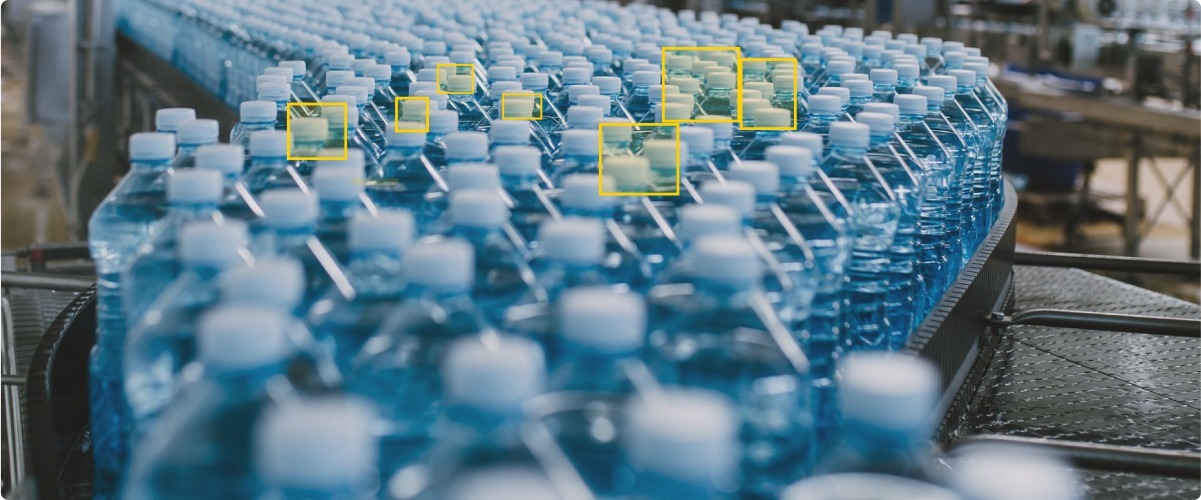Artificial Intelligence (AI) is transforming the manufacturing industry by increasing efficiency, reducing costs, and improving overall product quality. One of the most promising applications of AI is in quality assurance (QA) processes on the production line.
AI is revolutionizing manufacturing QA processes. By leveraging Edge AI technology on existing cameras and hardware, AI and computer vision is being used for any task that historically requires human eyes and human understanding but with dramatically greater speed and reliability. These AI solutions are evolving to both support and optimize your existing manufacturing processes.
Understanding the role of AI in production line QA
AI is transforming the way quality assurance is orchestrated. By automating the monitoring and inspection of products at various stages of the production process, AI can significantly enhance QA practices, minimize human error, increase accuracy, and save time.
Historically, QA in manufacturing has been a labor-intensive process that has required skilled human inspectors to assess products for defects and deviations from established specifications. This approach was time-consuming, expensive, and prone to errors. But with the advent of automation and digital technologies, manufacturing processes have become more efficient, and companies have started to explore new ways to enhance QA practices.
The evolution of quality assurance in manufacturing
Over the years, manufacturers have implemented various QA methods, including statistical process control, Six Sigma, and Total Quality Management. These methods have helped manufacturers identify and address quality issues, but they still rely heavily on human intervention. With the rise of AI, manufacturers can now shift from traditional manual inspection methods towards smart, automated solutions that can save time and resources while ensuring consistent product quality.
Key benefits of implementing AI for QA
AI can provide significant advantages for manufacturers when used for quality assurance, including:
- Increased accuracy and consistency in identifying product defects
AI-powered systems can detect even the slightest deviations from established specifications, ensuring that all products meet the required quality standards. - Reduced reliance on human inspectors
By automating the inspection process, manufacturers reduce the need for human inspectors, leading to significant cost savings over time. - Enhanced productivity due to faster inspection times
AI-powered systems can inspect products at a much faster rate than human inspectors, leading to enhanced productivity and faster time-to-market. - Real-time data analysis and decision-making capabilities
AI-powered systems can analyze data in real-time, providing manufacturers with valuable insights and enabling them to make informed decisions quickly. - Ability to predict and prevent potential quality issues before they arise
AI-powered systems can detect patterns and trends in data, enabling manufacturers to predict and prevent potential quality issues before they occur.
Types of AI technologies for your production line
Integrating AI technologies into your production line can be a game-changer for your business. By automating quality assurance tasks, manufacturers can improve efficiency, reduce costs, and increase product quality. However, not all AI technologies are created equal, and it’s essential to choose the right ones for your specific needs.
Machine Learning
Machine learning algorithms can analyze large datasets from production processes and identify patterns or anomalies that could affect product quality. By using ML, manufacturers can predict potential quality issues before they occur, allowing them to take corrective action faster.
Deep Learning
Deep Learning is a more advanced form of ML that uses neural networks to learn from data. DL algorithms can analyze complex data sets and find correlations that may not be apparent to human operators. This technology is particularly useful for identifying defects in products or components, as it can classify them with high accuracy.
Computer Vision and Image Recognition
By using cameras and other sensors, AI-powered systems can capture images or videos of products and components and analyze them in real-time. This technology can detect defects, inconsistencies, and other quality issues that may be missed by human operators. Combined with image recognition, manufacturers can automate visual QA tasks, improving accuracy and efficiency.
Real-world applications of AI in production line QA
Many manufacturers have already started implementing AI solutions to improve their quality assurance processes. Let’s explore some practical applications of AI in production line QA.
Automated Visual Inspection Systems
In industries where product appearance and finish are critical, automated visual inspection systems powered by AI can greatly improve the speed and accuracy of defect detection. Using computer vision and image recognition, these systems can identify cosmetic flaws, surface defects, or deviations from product specifications, enabling manufacturers to quickly address quality issues.
Predictive Maintenance and Anomaly Detection
AI-powered predictive maintenance systems can monitor equipment health and performance in real-time, detecting anomalies that may indicate impending failures or deteriorating performance. This allows manufacturers to proactively address potential issues before they lead to costly downtime or compromised product quality.
AI-Powered Process Optimization
By analyzing production data and identifying patterns and trends, AI can provide insights into potential bottlenecks and inefficiencies in the manufacturing process. Manufacturers can use this information to optimize their production lines, reduce waste, and improve overall product quality and consistency.
Drive to adopt AI in manufacturing processes
AI is transforming the manufacturing industry by revolutionizing the way QA is conducted. By automating the inspection process and providing real-time data analysis, AI-powered systems can significantly enhance product quality, reduce costs, and improve productivity.
By understanding the various AI technologies, their applications, and the steps necessary for successful integration, manufacturers can position themselves at the forefront of innovation in quality assurance. As technology continues to evolve, we can expect to see even more benefits from AI in manufacturing. To learn more about Chooch’s solutions, check out our Ebook, AI in Manufacturing, and let’s get in touch.

